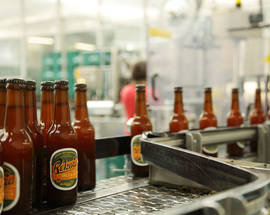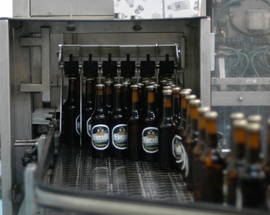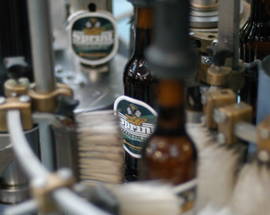Globalization has put many mid-scale breweries out of business in the last decade or so. Many of them are now owned by Europe’s biggest players on the beer market Carlsberg and Heineken. Many brands still exist, but are brewed centrally and no longer in their cities of origin. Zurich’s traditional brewery for example, Hürlimann, merged with the biggest Swiss brewery Feldschlösschen in 1996 and stopped brewing beer in Zurich, before both were taken over by giant Carlsberg. These mergers gave rise to a new phenomenon on the beer market: local brewers unhappy with their beer being brewed outside their city started to brew their own beer, so that today we have a handful of small but successful breweries in Zurich. In many of Zurich’s restaurants you’ll still be served the solid lagers Feldschlösschen or Hürlimann on tap - but we recommend giving the new Zurich beers a try as well. You find them in an increasing numbers of venues, be it bottled or on tap:
Beer from Zurich
more than a year agoGlobalization has put many mid-scale breweries out of business in the last decade or so. Many of them are now owned by Europe’s biggest players on the beer market Carlsberg and Heineken. Many brands still exist, but are brewed centrally and no longer in their cities of origin. Zurich’s traditional brewery for example, Hürlimann, merged with the biggest Swiss brewery Feldschlösschen in 1996 and stopped brewing beer in Zurich, before both were taken over by giant Carlsberg. These mergers gave rise to a new phenomenon on the beer market: local brewers unhappy with their beer being brewed outside their city started to brew their own beer, so that today we have a handful of small but successful breweries in Zurich. In many of Zurich’s restaurants you’ll still be served the solid lagers Feldschlösschen or Hürlimann on tap - but we recommend giving the new Zurich beers a try as well. You find them in an increasing numbers of venues, be it bottled or on tap:








Comments